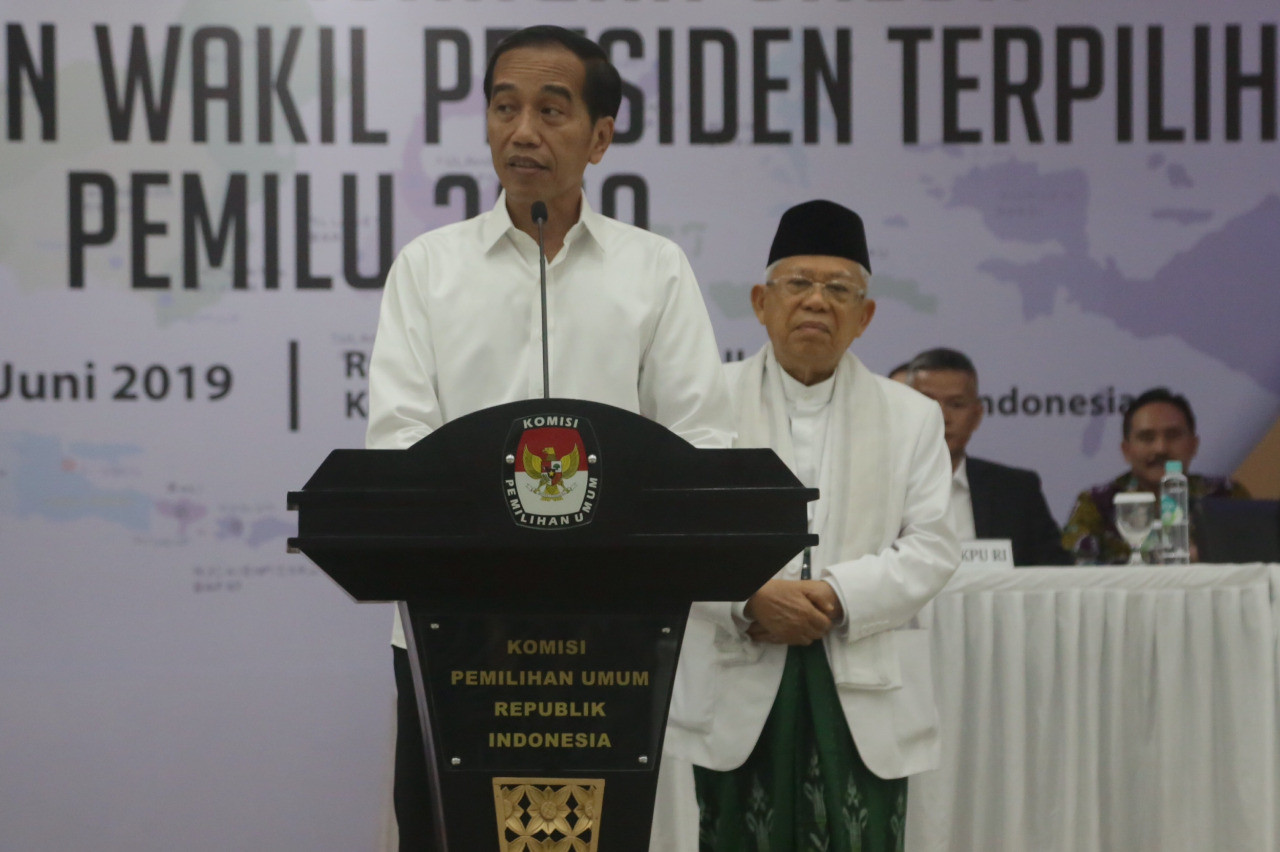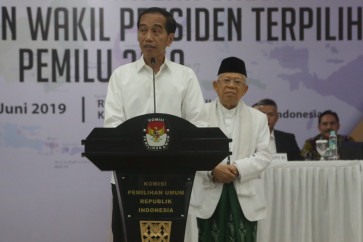Popular Reads
Top Results
Can't find what you're looking for?
View all search resultsPopular Reads
Top Results
Can't find what you're looking for?
View all search resultsJokowi’s infrastructure policy dilemma
President Joko “Jokowi” Widodo’s recent victory speech indicated that infrastructure will once again be emphasized in his second term. So, why are we not celebrating more success in creating this badly needed infrastructure? We cited below some of the main reasons.
Change text size
Gift Premium Articles
to Anyone
P
resident Joko “Jokowi” Widodo’s recent victory speech indicated that infrastructure will once again be emphasized in his second term. Its role is as a tool to boost the country’s development, logistics and investment, particularly outside Java. So, why are we not celebrating more success in creating this badly needed infrastructure? We cited below some of the main reasons.
Infrastructure projects involve significant time lags in construction and planning, so that in the short term, the projects are more a form of government stimulus than quick contributions to the nation’s capital stock. So, many presidential first-term infrastructure projects may not be ready yet, while many — if not most —second-term projects will likely not be completed before the end of Jokowi’s second term.
Public-private partnerships (PPP), regulated in Presidential Regulation No. 38/2015 on PPP, have had little weight in current decision-making on infrastructure projects. Most projects are given to state-owned enterprises (SOEs) which are supposed to ensure fast project delivery. But there is no standard for a government contracting authority (GCA) to determine whether a project has to be competitively tendered (under PPP) or given to the SOEs, through business-to-business (B2B).
Private investors, foreign and domestic, are up against SOEs that can accept risk allocations and rates of return that the private sector cannot. There should be standards in place for a GCA to evaluate the projects more broadly, for example, less burden to the state budget, involvement of the private sector, legal ability to do project finance, etc. Setting those standards, however, requires a better understanding of the hidden downside risks of consigning projects to SOEs, which, after all, the President embraced during his first term as a politically popular decision.
The government has been careful to keep the official deficit within a maximum three percent of gross domestic product (GDP), as international and constitutional standards for fiscal prudence. Just like in China, Indonesia wants SOEs to finance 30 percent of the national strategic projects, twice as much as the state budget contribution. Most financing for these SOEs comes from state-owned banks. Bank loans to nonfinancial SOEs recently reached 8 percent of the Indonesian banking system’s total (Bank Indonesia, 2018). Meanwhile, there is a certain sleight of hand in moving infrastructure expenditures from the formal government budget into state bank balance sheets as loans.
There are a variety of hidden legal issues that account for reciprocal reliance between state banks and SOEs here. Among them, SOE assets are normally considered to be state assets and so not subject to hypothecation and bankruptcy in secured financing terms. Private sector financers are also uncomfortable with the idea of SOEs as basically noncommercial entities that might favor political considerations over economics in decision-making.
The overly generous state bank lending is really more an accounting fiction to keep the official deficit under 3 percent. If the SOEs cannot repay state banks the infrastructure loans from project revenues in the longer run, the state will simply have to recapitalize the banks, in which case the recapitalizations will be characterized as a special case (remember the 1998 banking crisis).


















